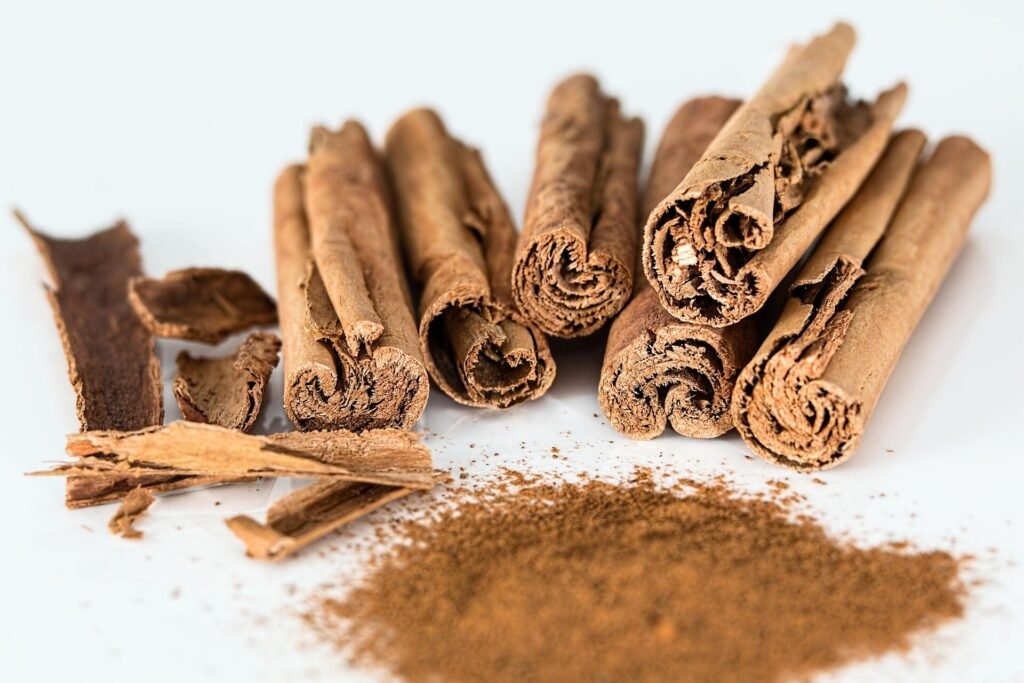It’s no surprise to Northeastern food policy expert Darin Detwiler that high levels of lead are being found in both protein powders and bottles of cinnamon.
Recent tests by Consumer Reports found so much lead in plant-based nutritional supplements that some products weren’t considered fit for consumption even occasionally.
In the meantime, the U.S. Food and Drug Administration has issued alerts for 16 brands of cinnamon due to high levels of lead.
Consumers may think of plant-based supplements as a healthy source of protein and of spice from the cinnamon plant as a nutritionally sound flavoring alternative, Detwiler says.
But he says both are susceptible to heavy metal toxicity because of the way they are manufactured and the lack of regulations around lead in food products.
“Consumers should not assume that products marketed as ‘natural’ or ‘plant-based’ are automatically safer,” Detwiler says.
The reverse may actually be true. According to Consumer Reports, “The lead levels in plant-based products were, on average, nine times the amount found in those made with dairy proteins like whey, and twice as great as beef-based ones.”
Increased lead contamination in global soil
It’s hard to entirely avoid the presence of lead, a naturally occurring heavy metal, in the soil, Detwiler says.
“But decades of industrial pollution, mining, pesticide use and contaminated irrigation water have increased its presence in soil globally,” he says.
“Plants used in protein powders—especially rice, peas and hemp—are particularly prone to absorbing lead and other heavy metals from the soil as they grow.”
“Unlike dairy-based products, which are filtered through animal biology, plant-based proteins are more directly exposed to environmental contaminants during cultivation,” Detwiler says.
Cinnamon plants can also absorb lead in the soil as they grow.
The spices from global sources such as Sri Lanka and Vietnam have “been found in past FDA and academic studies to contain elevated levels of lead, especially when mixed with tainted colorants or additives,” Detwiler says.
Powdered means concentrated when it comes to lead
He says producing powdered versions of plant proteins and cinnamon spice amplifies the risk of lead contamination.
“Drying and grinding plant material can concentrate any contaminants present in the raw crop, including heavy metals,” Detwiler says.
“Powdered crops are often blended with many other powdered ingredients, increasing the chance that contamination from a single ingredient, such as rice protein or spice powder, could impact the entire product,” he says.
Harmful health effects
Lead is a neurotoxic heavy metal that can cause permanent brain damage in children at even low levels, Detwiler says.
“The Centers for Disease Control and Prevention and the World Health Organization both affirm that no level of lead exposure is safe for children,” he says.
Adults are less susceptible to the harmful effects of lead but can experience neurological damage, kidney dysfunction, cardiovascular problems, immune system disruption, reduced fertility and, in older adults, cognitive decline due to exposure to the heavy metal, Detwiler says.
Room for regulation
A lot more needs to be done to protect consumers from lead in supplements and food products, including tighter scrutiny of ingredient sourcing and soil health, Detwiler says.
“There is no single, universally accepted federal limit for lead in all food products in the U.S., which is part of the problem,” he says.
“No federal law sets maximum lead levels specifically for dietary supplements, unless they are marketed to children or fall under separate food categories,” Detwiler says.
There are some key benchmarks, but as of this time the one recommended by Consumer Reports—0.5 micrograms a day from a single food item—is stricter than the FDA’s Interim Reference Level for lead exposure in children, which is 2.2 micrograms a day, he says.
Recommendations
Detwiler says until stricter regulations are in place, there are steps consumers can take to protect themselves from lead exposure in food products.
“Vulnerable populations—including parents, pregnant individuals, older adults and those with chronic conditions—should avoid the daily use of protein powders, especially those based on rice, hemp and pea protein, unless tested for contaminants by a third party,” he says.
Consumers should opt for products certified by independent bodies such as NSF, USP and Informed-Choice that test for heavy metals, Detwiler says.
“In a culture that markets high-protein consumption as universally beneficial, people may be overconsuming these products without considering the toxicological trade-offs, especially when whole food alternatives are available.”
He says, “Nutrition strategies should emphasize whole foods over ultra-processed ‘nutritional boosters’ unless medically necessary.”
This story is republished courtesy of Northeastern Global News news.northeastern.edu.
Citation:
Why high levels of lead are found in plant-based protein powders and many brands of cinnamon (2025, October 17)
retrieved 20 October 2025
from https://medicalxpress.com/news/2025-10-high-based-protein-powders-brands.html
This document is subject to copyright. Apart from any fair dealing for the purpose of private study or research, no
part may be reproduced without the written permission. The content is provided for information purposes only.


